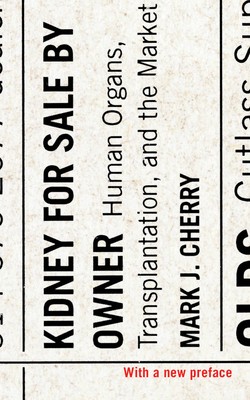
- We will send in 10–14 business days.
- Author: Mark J Cherry
- Publisher: Georgetown University Press
- Year: 2005
- Pages: 258
- ISBN-10: 158901040X
- ISBN-13: 9781589010406
- Format: 17.8 x 22 x 2.5 cm, kieti viršeliai
- Language: English
- SAVE -10% with code: EXTRA
Reviews
Description
During the past ten years over 4,600 people have died annually in the United States while waiting for organ transplants. In 2003, 83,000 patients waited for transplantation--but only 20,000 patients received them. While everyone seems to agree that this is a national tragedy, bold initiatives to address the problem--such as creating a fee-based and regulated market for organ transplantation--have been fiercely rejected by the federal government and the medical community. But why? If most Americans accept the notion that the market is the most efficient means to distribute resources, why should body parts be exempt? Bioethicist Mark Cherry contends that not only is the market a legitimate means to distribute body parts, but that this approach is actually more just--and more compatible with many Western religious and philosophical traditions--than the current charity-based system now in place. Cherry carefully examines arguments against a market for body parts, made by such figures as John Locke and Immanuel Kant and Thomas Aquinas, and shows these claims to be steeped in myth, oversimplification, and bad logic. Taking his cue from the philosopher Robert Nozick, Cherry contends that in regard to body parts such core values as equality, liberty, altruism, social solidarity, human dignity, and, ultimately, improved health care are more successfully supported by a market rather than through its prohibition. Rather than focus on the purported human exploitation and "moral repugnance" of selling organs, he says, we should focus on saving lives.
EXTRA 10 % discount with code: EXTRA
The promotion ends in 21d.07:16:09
The discount code is valid when purchasing from 10 €. Discounts do not stack.
- Author: Mark J Cherry
- Publisher: Georgetown University Press
- Year: 2005
- Pages: 258
- ISBN-10: 158901040X
- ISBN-13: 9781589010406
- Format: 17.8 x 22 x 2.5 cm, kieti viršeliai
- Language: English English
During the past ten years over 4,600 people have died annually in the United States while waiting for organ transplants. In 2003, 83,000 patients waited for transplantation--but only 20,000 patients received them. While everyone seems to agree that this is a national tragedy, bold initiatives to address the problem--such as creating a fee-based and regulated market for organ transplantation--have been fiercely rejected by the federal government and the medical community. But why? If most Americans accept the notion that the market is the most efficient means to distribute resources, why should body parts be exempt? Bioethicist Mark Cherry contends that not only is the market a legitimate means to distribute body parts, but that this approach is actually more just--and more compatible with many Western religious and philosophical traditions--than the current charity-based system now in place. Cherry carefully examines arguments against a market for body parts, made by such figures as John Locke and Immanuel Kant and Thomas Aquinas, and shows these claims to be steeped in myth, oversimplification, and bad logic. Taking his cue from the philosopher Robert Nozick, Cherry contends that in regard to body parts such core values as equality, liberty, altruism, social solidarity, human dignity, and, ultimately, improved health care are more successfully supported by a market rather than through its prohibition. Rather than focus on the purported human exploitation and "moral repugnance" of selling organs, he says, we should focus on saving lives.


Reviews